|
What you're looking at is a balanced equation of sucrose (food) plus oxygen (breath) producing carbon dioxide (exhale) and water (sweat). Exactly 10 grams of sucrose is converted to the right (lower) side via the oxygen in about 70 breaths.
I was doing chemistry conversions, balancing reactions, and this simple truth popped up in the depth of complex systems. And it really is this simple. You breath. And you use up energy. I've heard people talk about being "bad" at breathing in workouts. That's a problem. Because, quite literally, all you need to do to improve body composition and athleticism is breathe. People will join the latest trendy fitness boutique and buy every supplement known to man before they even consider improving their breathing skill and practice. Talk about cart before horse. I've had clients look at me like I'm insane when I repeatedly talk about the central importance of breath skill. It won't just take care of itself. You have to put intent into it. Day 1, I have every client or student do intentional breathing and 100% want to skip this "step." It's not a step. It IS everything. The chemistry CANNOT be done for anything in fitness without increasingly adding oxygen to the system. For those who hear me, they get 5-10% jumps in performance right away. By no means am I an advanced meditator; but even I can totally alter my emotional and physical state via my rudimentary breathing practice. Plenty of my stronger or more conditioned buddies have slower rowing sprint times than I do, simply because I have learned to calm myself in an all-out sprint. My wife has seen me drop my heart rate into the 20s bpm just by focusing on breath. One of my buddies recently watched me drop my standing heart rate (after having caffeine and working out) from over 100bpm to around 60bpm in less than a minute. And none of this is even advanced. Wim Hof is advanced. Tibetan monks are advanced. You? Just practice.
0 Comments
“220 minus your age” is demonstrable garbage. Semi-informed people pipe back, “BUT The Karvonen formula is pretty good!” I’m sorry. Do you actually know what the Karvonen formula is? Because, just a reminder, it assumes max HR within it. So it’s still total garbage for most people. The en vogue fitness franchises referencing zones without testing are knowingly dishonest, and capitalizing on the layperson’s insecurities and lack of education on the matter.
I wish that everything popular in fitness weren’t complete trash. I do. That would be great. But, alas, it is. There is a single reliable way to determine respiratory exchange ratios, your individual cardio respiratory curve, ideal fat burn, thresholds and max heart rate. It involves an appointment with an exercise physiologist and/or metabolic specialist, a chest strap, breathing apparatus, computers, and spreadsheets. According to pop fitness, my max heart rate is 182. The Karvonen formula tells me my working range is around 110-130bpm and 85+% effort is in the 150s. I warmed up at 185bpm for 10 minutes, then pushed a little to hit 196 (with A LOT left in the tank - video here: https://www.instagram.com/p/B4Z4-ZMj5OV/). This video alone proves almost every heart rate training recommendation is bogus. I don't know what else to tell people. I am literally sacrificing my body and time to prove to you that the popular recommendations out there are a waste of your time. This is a video demonstration disproving almost every heart rate recommendation you've seen, heard, or read. And I'm just gifting this to you, so that people can be sane in their approach to health and fitness. There is no call to action here. I am not marketing my methods, my product, my opinion. I am not asking for a donation to the website. These blog entries are my charity work for those who might like to learn from someone with almost 50,000 hours of professional experience in the fitness industry. I just want the insanity to stop. I'm so incredibly tired of the infomercials, the social media ads, the side bar search results, the trendy fitness boutiques and "influencers." They're all fake. They're all bogus. They are just sales funnels. Most heart rate training is bull****. Several years ago I heard an interview in which a very sobering story about the emptiness of wealth featured sharply. It was a dinner someone attended wherein the combined net worth at the table was greater than the GDPs of some countries:
”... went to this dinner in Silicon Valley and everyone at the table had at least 200 million dollars... [they’re] drinking 10,000 dollar bottles of wine that were just stacked up in the basement. In listening to the dinner... [you] would assume they had just been laid off from Burger King, and had 5 kids and couldn't pay the mortgage. They were so deeply unhappy, and so depressing to be around because of their pessimism and cynicism, that it highlights for me... (the need for) gratitude in the present tense. I once heard that depression is being stuck in the past; and anxiety is being stuck in the future.” People get exactly what they want only to discover it wasn’t at all what they really need. People: have you heard of this new documentary on veganism?
My brain: *solves Rubik’s cube (video here: https://www.instagram.com/p/B4VS76jDtPX/)or does literally ANYTHING else* I’m not even sure what to say to people who are just now learning one angle of one side of an old and tired debate. The first thing that comes to mind is, "have you read A book in the past forty years?" Because literally thousands of books have tackled this ad nauseum for over half a century. I was vegan decades ago. Daniel did it 2,600 years ago. Kellogg invented the plant-eating American culture in the 1800s which persists to this day. I hate to break it to people, but vegan isn’t new, the arguments aren’t new, AND the centerpiece of American eating is already plants: grains. It isn’t steaks. Does anyone recall growing up WITHOUT fruit, juice, breakfast cereal, lunch without peanut butter/carrots/apples/etc, and dinner without bread/pasta/potatoes/etc.? All of this is vegan. Where were the hoards of animal products? We're already vegan. I have incredibly vague recollections of rare and infrequent meat-centered meals, mostly holidays in my childhood. Was everyone else starting their mornings with pounds of bacon seven days a week? I sure wasn't. Even the Thanksgiving dinners I clearly remember were 95% NOT ANIMAL: stuffing, mashed potatoes, yams, rolls, green beans, cranberry sauce, pumpkin pie. Meat was barely on my radar until recent years when I began healing all of my health problems which stem from years of emphasizing plants as my main food source. The first protein powders I started using in the early 90's were soy, and they gave me breast tenderness at age 12. Along with eating vegetable oils, higher carb intake, and an effort at eliminating saturated fat, I then went on to have horrific skin from 13-19. Thanks, veganism! Even to this day, if I start trending back to my vegetarian roots, I break out and digestion is dicey. As long as I keep higher red meat and saturated fat content, my skin is perfect and digestion is phenomenal. I was physically incapable of getting a shredded six pack until I began experimenting with meat-centered dieting. This isn’t new. I don’t want to take the wind out of anyone’s sails. If you like vegan, cool. If you have ethical concerns, great. If you think we should pay attention to sustainability, I don’t disagree (but then we should be talking efficiency standards and entomophagy, not veganism). Maybe it's because my sister was going through her treehugger phase when I was 8-11 years old. Maybe it's because my mom went to UC Berkeley in the 1960s. But NONE of the vegan arguments are news to me, nor are they compelling. They are pitiably outdated. And those that aren't woefully outdated are shamefully misrepresenting the state of affairs at contemporary local farms. Those horror story factory farm videos you guys are just now seeing on YouTube I saw in the 1980s. And they were at least a decade old then. And yes, I agree, the conditions of factory farms in the 1970s were terrible. At massive production plants today, they still are pretty terrible, although they are incredibly more efficient, making the water cost arguments totally obsolete. But guess what: those aren't the places from which educated non-vegans get their food nowadays. We're paying as close of attention to our food as the first vegans were paying to their sourcing years ago. I've visited the farms from which I get my beef. I've seen the conditions. I've watched the land get rotated. Do you think the average vegan has done that for the crops from which he's getting his food? Not the ones I know. They can't even name any of the farms from which they're getting food, let alone having personally visited all of them. If you cherry pick old outdated science and misrepresent the takeaway, I’m just not interested. Many former vegans like Jordan Rubin have already LONG AGO described in painful detail why it is an insufficient diet. Chris Kresser has enumerated the vital nutrients missing in veganism. And that's not even the main problem with plant-based diets. Plants can't run away from their attackers the same way that animals can. So they've had to create other types of defenses, namely poisoning their predators. This isn't hyperbole. Plants all contain some chemicals to dissuade predators from destroying them. There are some caveats here, like how the arsenic inside an apple is modest enough that we can tolerate it. The cyanide inside the apple seeds we know not to ingest. The caffeine in a coffee bean or tea leaf is fairly innocuous. And the nicotine in eggplant is only a little bothersome. However, as you begin to actually study chemistry with regard to foods you discover that plants are a minefield and meat isn't. Inherently, plants are trying to poison and they carry a fundamental risk with regard to our immune response. Secondarily, we find that the acids in them can be problematic, the lectins in them are problematic, the plant proteins resist breakdown, and that people who manage just fine with the histamines in fermented foods don't respond as well to the histamines in chickpeas, soy, and legumes. In fact, that's a whole additional can of worms. The Western world so overdid its veganism that the top 20 food allergies only contain 3 animal products. People don't have seasonal allergies to animal smell, folks. And those same crippling pollens, which cross-pollinate with different plants, trigger new allergies to additional foods that are plants. Ask a pediatric allergist. This is a pandemic right now. I don't know how else to spell this out: plants are not inherently superior for human consumption. This immunological component seems to be the hardest part of the subject for the vegan newbs to understand. They'll learn in time. Some people DO tolerate mostly plant-based eating. Some. Not most. I've been at it long enough that I've had the great "fortune" of seeing numerous people get adverse reactions, nearly die, become infertile, immune compromised, or incapable of fat loss (hypothyroidism) simply from plant-based eating. For us, we don't have the grand luxury to keep thinking plant-based eating is better, because... it isn't. It almost ruined our lives. For us, we have cured our seasonal allergies, our complexion issues, our digestion issues, our obesity, our autoimmune challenges, our infertility, our metabolic and thyroid insufficiency, our chronic health problems by emphasizing meat to the reduction of plants. I wish plant-based eating were better. I yearn for it to be. I want it to be true. It just isn't. Since food waste represents more than half of all food we produce, the biggest area of opportunity concerning sustainability isn't switching to veganism, by the by. It's reducing food waste. If we just reduced our food waste by 50% that would represent a larger positive global impact than 100% conversion to veganism. Moreover, feeding humans has an impossibly inherent cost; and it's NOT so clearcut whether massive production of crops is actually a lower environmental cost than just letting animals (which we'll use) naturally graze about a habitat, cyclically rotating the land for different uses. Don't forget that the laws of unintended consequences are always at play, and our efforts at food pyramids and normalizing plant-based diets has yielded the most medicated populace on earth. When people miss the necessary nutrients which are in animal products, they are more agitated, anxious, and depressed. Are we actually reducing environmental impact if the cost is people hating life while we amass piles of pharmaceutical drugs in our rivers, lakes, and streams? Lastly, the number one way to reduce consumption is to eliminate a lot of the human populace. Since vegans aren't volunteering en masse for euthanasia, I doubt the depth of their beliefs and am further convinced that it's just a lot of newbs who grappled onto an exciting "new" idea. For those of us who've actually thought about, studied, and lived it to some extent for 30+ years, the novelty and "rightness" wore off a looooonnnnnnngggggg time ago. Of course, if you eat FRESH high quality food (of any kind), it’s on average going to beat processed low quality garbage. Lying and saying that “plants did it” is inaccurate and just not interesting to most educated people. It's great that some people are just today learning about this subject, a subject which ramped up a hundred and fifty years ago and peaked twenty-five years ago. If they remain in the 5% of lucky people who don't develop major negative metabolic or immunological response, that's great for them. I'm happy for their outrageous lottery-like luck. It's great that young adherents are in the honeymoon phase, not knowing the debate rose and fell a few decades ago. Really, it is cool. Good for them. The excitement they have is quaint and kind of cute - I can remember when I too believed in veganism. Then I grew up and gained three more decades of understanding. And my brain would rather spend effort on something which involves intellect; and that's literally anything other than vegan-proselytizing. When you lift or press a weight for 10 seconds, you deplete your first line of energy, called ATP: https://en.wikipedia.org/wiki/Bioenergetic_systems. The same thing happens when jumping or sprinting, or frankly even lower intensity exercise. It takes 30 seconds to recover 50% of the ATP. In 60 seconds, you may be 85% recovered. But it will take until 3-5 minutes to be fully restored.
If you are working at an intensity that will build strength, it is an immutable physical law that recovery is going to take beyond 60 seconds. Any effort which can be continued for minutes at a time and recovered from in less than 60 seconds is not strength. By definition, you aren’t training strength unless it takes 1-5 minutes to be prepared to replicate the performance. This is a biological fact, not a fitness opinion. And it cannot be overcome through will or “pushing it.” It’s a set chemical law of nature. Walking is not strength. Raking leaves and shoveling isn’t strength. Tabata isn’t strength. HIIT isn’t strength. Circuits aren’t strength. Picking up 1lb or 2lb dumbbells isn't strength. Most popular fitness isn’t strength. It can’t be, by biological definition. If you persist beyond 10-15 seconds in an exercise, there is an immediate drop in power as you begin to call upon the glycolytic system (which will also begin creating lactic acid). This can sustain you until around 45 seconds, at which point you’ll suffer another drop in power (by 90 seconds you are firmly in aerobic territory). Thus, if you want to train to INCREASE power (ie - strength), you must remain pretty tightly in the 10-15 or at least sub-45 second efforts. AND to repeatedly do this will require REST, a MINIMUM of 60 seconds up to several minutes of rest in between. Over time, you increase the intensity, resistance, load AND rest times. Real strength training DEMANDS rest. If you aren’t resting in between efforts, you aren’t strengthening. If you don't HAVE TO rest for minutes at a time, you aren't strengthening. Everything requires strength. Sitting in a chair requires strength. Holding a pencil requires strength. But they are not training increases in the capacity that is strength. Most activities are not TRAINING improvements or even maintenance in strength, because they are an intensity which can be done for longer than 45 seconds and require very little or no rest in between. If the intensity of something is low enough that you can continue it well in excess of 45 seconds, it isn't strength. If you can replicate that effort after only a few seconds of rest, it isn't strength. If you aren't consistently getting stronger, reducing pain, and improving life, what you're doing isn't strength. My coworkers, employees, peers, and clients had been performing incredible records and feats from 2004 to 2012 and we never thought to video any of it. That was back in the days when people just worked really hard or simply enjoyed the gym, and didn’t post every brain fart that popped up.
The other things I really like about these rare shots is that you can see how much fun we’re having (videos here: https://www.instagram.com/p/B4R3PheDzUS/). There was zero thought about angles, takes, production value, lighting (or even if the lens is clean!). The fact that I was negative 2% bodyfat was cool too. But guess what. At the time, I didn't have anywhere to upload this. I didn't have a LinkedIn account. I didn't have Facebook. Brace yourselves. This isn't hyperbole. I spent less than 10 minutes PER DAY on all mobile devices combined! I miss those days. Nowadays, just look around the gym and you'll see people totally immersed in their phones, aligning their cameras to capture every single little effort. It's cute. Uncertified and uncredentialed nobodies with next-to-no experience can become celebrities with the right marketing efforts and an itchy camera finger. To this day, when I meet with buddies to do workouts, my phone is still away. I’m intent on being in the moment. Often they’ll say, “shouldn’t we catch some content to post?” No. We shouldn't. I don't think random viewers are entitled to know the deep intricacies of fitness experience from seasoned veterans. I don't think they can be trusted with the nuance, nor can they synthesize the breadth of information. The best should never be filmed. Actually, it can't. If you aren't physically present, you don't deserve to see the greatest. And make no mistake, folks. We don't. Every performance which is documented, no matter how incredible, is a tiny sample populace of the trillions of hours of physical feats performed in the universe. We're deluding ourselves to think the greatest athletic moments have been captured on film. By definition, they can't. Even Olympics. Even combines. Even championships. I guarantee that the best moments happened in scrimmages, in unfilmed training, in private quiet dedication to ones craft, that the layperson and general audience will never know about. Oversharing has ruined people's ability to even keep this in perspective. A lot of young adults and kids genuinely believe the greatest athletes of all time are contemporary bros with YouTube channels. Early 20th century strongmen and basically the entirety of written history might as well be all fairytales, as far as they're concerned. In their minds, if something didn't get a social media upload today, it's as if it doesn't/didn't and can't/couldn't exist in reality. News cycles are less than 12 hours. Near-naked girls in a non-stop "look at me" narcissism have become "fitness professionals." If they dare to spend the time it takes to get real experience and miss a single check-out-my-new-bikini update, they risk losing relevance and disappear into the nether as if they never existed in the first place. It's insane. I’ve been a part of or run multiple 6 to 9 figure fitness businesses for over 16 years without much sharing at all (technically, we used NONE until about four years ago). Thus, my perspective is very contrarian. In my mind, the only realities in fitness are those with little to no web presence, which can't be found in a google search, which have no sponsored ads on feeds, etc. I know bankrupt people who've floundered in the fitness industry with over a hundred thousand followers. And I also know people who've made about half a million per year without a single social media account. To me, success, validity and respectability is inversely related to internet popularity. In fact, I even resent that I've had to pay attention to the societal obsession with oversharing. People are actively giving up the purity of an act for itself. I am not interested in giving up that purity. The nirvana we can experience from being totally present in our greatest moments of life are GONE once we commit to oversharing. I'm not willing to reduce my life to that level. And many artists (musicians, in particular) have figured this out. They tire of making stories or art or music while always thinking about how the marketplace will react. They want to just lose themselves in their art, not thinking about critical acclaim, not thinking about publishers, not thinking about anything but the beauty of the moment. People like Prince wrote enough music for hundreds of albums, but he never intended to share any of it. Comedians like Dave Chappelle banned cameras at his shows so that he could experiment with material, play to the highest level of his craft, specifically WITHOUT the Twittersphere all aflutter with reactions and condemnations. Are you paying attention yet? The best is never filmed. Meanwhile, average people actually look for ways to trade out the experience of their best moments in order to document the now-lesser moment in a photo or video. People think that photos and videos are better than palpable physical touch. It's incredibly sad. When I was 16, I took such wonderful joy in doing certain soccer tricks. I searched for opportunities in a practice or game to pull them off. To nail a full front split while leaping through the air in order to stall an overhead soccer ball was magic. I never thought to videotape it. That would've corrupted it. It would've sapped the magic from the moment. It would've deprived me the instinctive wonder and self-satisfaction of that just-right millisecond. When, at 17 and 18, I slogged out 12 mile runs, I would've considered it gratuitous, shameful even, to stream that experience for onlookers. It was my internal experience alone to be had. Capturing the view would've been impure. Distance running with a camera is depraved. What's happening inside is all that matters. What's happening inside is the truth. What's happening on the outside is simply pornography. And that's perhaps the word to remember, because this incredibly anxious and depressed populace is the porn generation. For them, activities are no longer to be experienced and kept sacred. Activities are to be overshared in visual representation, perhaps never to be felt internally. Stimulating visual excitement has replaced reality. The marketplace doesn't want influencers to be educators. The marketplace just wants pornographers. It's no surprise that the average person has ZERO internal drive. Individuals are training the drive right out of themselves. It's common for people to just seek a pornographic dopamine high, not an experiential reality. Experiential reality requires discipline, integrity, and deep change. The dopamine high requires... a camera and a screen. I mean, I get it. It’s fun to capture some moments; and part of marketing is staying present in the minds of the public. But maybe, sometimes, just be present in your program. Maybe, just get real world experience. Maybe, just connect with REAL reality. Because the best experience is actually experiential. Go figure. And that can't be filmed. We get hurt - "why me?"
We get healed - "why not sooner?" We catch a break - "is that all?" We get a gift - "is there more?" We get opportunity - "how could this possibly fit into my schedule?" We have potable water - "can't I drink something tastier?" We have access to food - "why can't I indulge?" We have housing - "why can't my house be like X?" We have transportation - "am I going to have to clear my car off?" It's too easy to want. It's too easy to forget how good we have it, and how bad others have it. My father-in-law and I exchange quotes we like. He sent me this screenshot with the Norman Vincent Peale quote bracketed. The circumstance of the moment can't be changed this moment. But the attitude about that circumstance is in our hands. People: I want to gain a little strength.
Me: I aim to get late-in-life starters to 2x-3x bodyweight on structural lifts. People: and what about life-long athletes? Me: there is no ceiling. I have to give a lot of credit to this guy. I have people breaking personal bests left and right every single week; but he did ONE refeed and he came in today exploding with power, knocking out this 520lb hatfield squat. Two things: 1.) if you haven’t explored Hatfield variants yet, check out my prior posts on them 2.) in either direction, leaning out OR bulking, consider a targeted refeed to move the needle - you'll be glad you did Heavy structural lifts deliver more balance than “stability” and balance exercises: https://www.ncbi.nlm.nih.gov/pmc/articles/PMC3885846/ .
That's right. Lifting weights gives you better balance than showy balance exercises. Every time that a heavy deadlift program is stacked up against bosu-yoga-side-band-single-cross-body complex press-pull skibbity scoot nonsense, the structural lifts prevail. BUT, fitness popularizers will showcase exercises like these to excite an audience. It’s a put on. The craziest balance exercises I’ve ever been capable of performing was when I didn't even practice balance per se. I just got incredible balance by getting deep layers of muscle very strong. High level strength athletes who perform NO silly balance drills put my balance to shame. Elite powerlifters have far better balance than a tv celebrity trainer simply because they are so powerful (the same muscle fibers which govern reaction/balance). You'll notice that weak people have terrible balance no matter how much they practice balancing; and strong people have good to great balance even if they practice no balancing. Nonetheless, if you want to try something different, here are some balance variants (videos here: https://www.instagram.com/p/B4MxQ8cjJvK/) whose primary value is to keep the program from feeling stale. In the end, however, just get strong and your balance will improve. Now you know.
Tocotrienols and carotenoids are just a few of the many reasons you will become a superhuman with this added to the program. Like any of the beneficial oils, there are legitimate concerns about sustainability. However, with regard to fundamental individual health impact, there’s more bioavailable superfood in here than a top shelf multi. One aspect of high saturated fat strict ketogenic dieting (per the medical definition by Wilder and Peterman) which I’ve not dwelt long on before is the anti-oxidative benefit which undoubtedly optimizes hepatic cholesterol production. In every experiment I’ve ever conducted along these lines, HDL reaches insane heights while VLDL vanishes. But DO science and see for yourself. |
Elev8 Wellness
|
LIVE. AWESOME.We offer the highest quality in personal fitness, nutrition, and mindset coaching, helping you achieve your fitness, health, wellness and performance goals no matter the obstacle. With virtual online training and private, in-studio training we make it easier to reach your wellness goals safely.
No more can't. No more not good enough. If you compete in a sport, let your mind no longer hold you back from being the greatest. If you don't, let your mind no longer hold you back from being the best version of you that you can be. Sign-up for a Tour Covid Screen Waiver Elev8 Waiver Become an Elev8 Instructor Space Rental |
6244 lyndale ave. s., minneapolis, mn 55423
|
© 2021 Elev8 Wellness LLC. All Rights Reserved. site map | contribute | SITE BY Sproute Creative

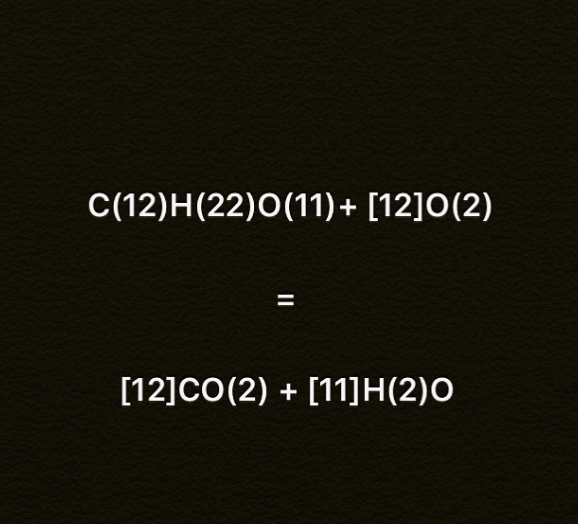
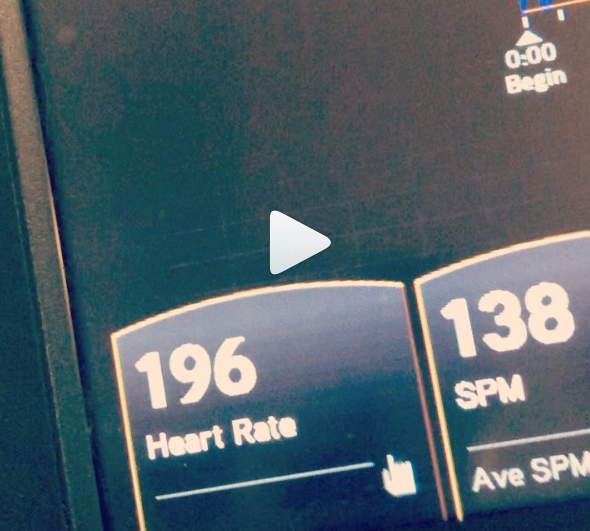


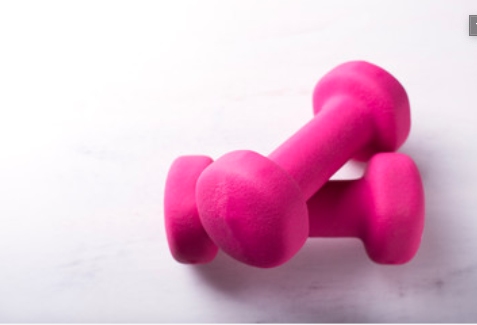

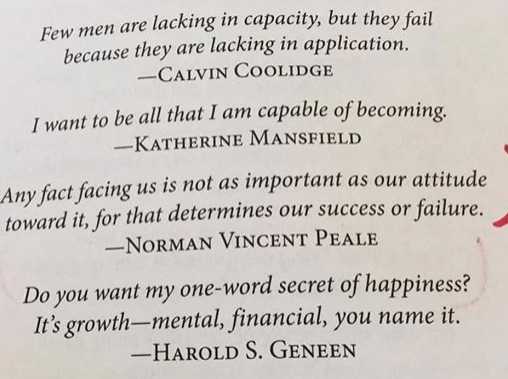
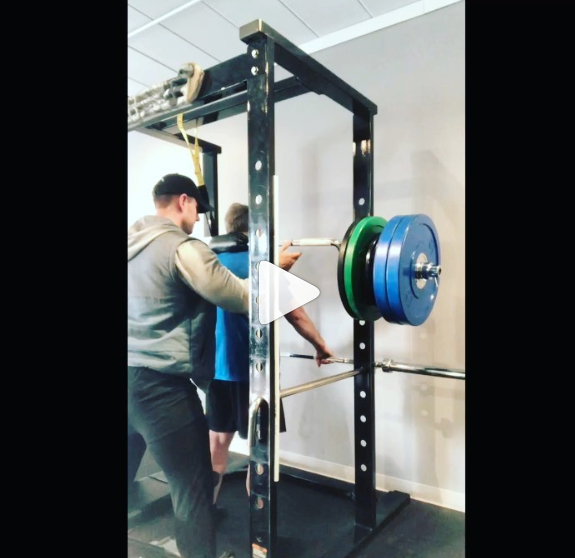

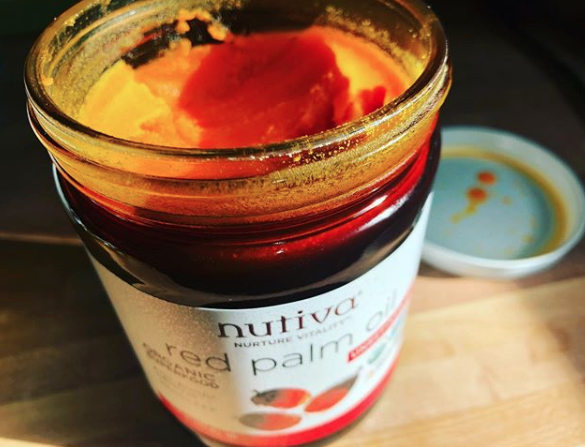
 RSS Feed
RSS Feed
